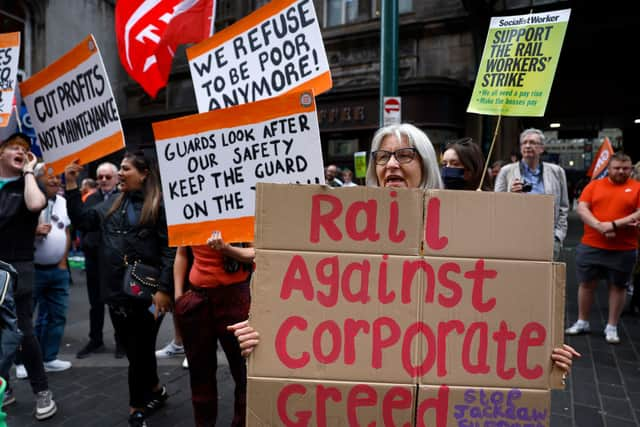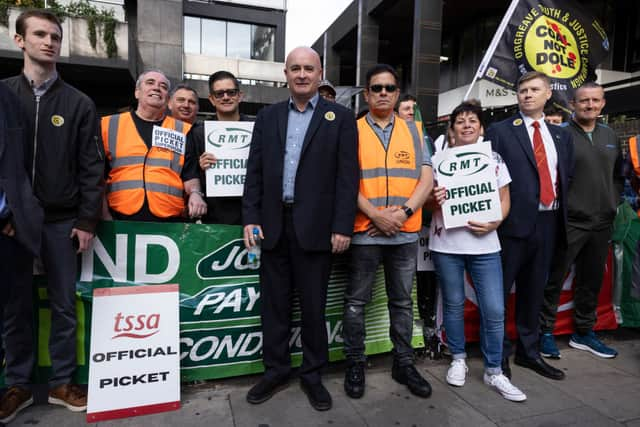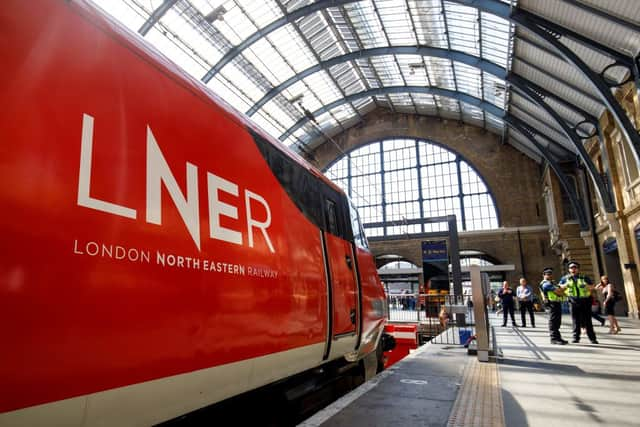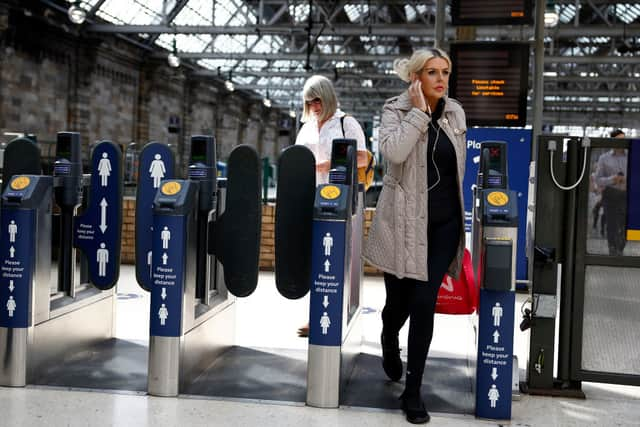Why are rail workers striking? Which train staff members are on strike and reason for July 2022 strikes
and live on Freeview channel 276
Today, Wednesday 27 July, rail networks across the UK have faced major disruptions once again as train staff walked out in an ongoing dispute over pay and working conditions.
Over 40,000 members of the Rail, Maritime and Transport union (RMT) are taking part in the 24-hour strike, which has forced around half of Britain’s rail network to close.
Advertisement
Hide AdAdvertisement
Hide AdThis is what you need to know about who exactly is striking - and why.
Why are rail workers striking?
Rail workers are striking due to an ongoing dispute over jobs, pay, pensions and working conditions.
Members of the Rail, Maritime and Transport union (RMT) at Network Rail and 14 train operators went on strike after union leaders rejected a “paltry” 4% pay rise offer from Network Rail for the rest of the year, and a potential 4% pay rise in 2023 if staff accepted changes to their job contracts.
The RMT has said that the offer from Network Rail represents a “real terms pay cut” for its members.


Advertisement
Hide AdAdvertisement
Hide AdInstead, the RMT is calling for a pay rise of at least 7%, which, as it stands, is still below the current rate of inflation, which is at 9.4%.
In a statement, RMT general secretary Mick Lynch said: “Our members are more determined than ever to secure a decent pay rise, job security and good working conditions.
“Network Rail have not made any improvement on their previous pay offer and train companies have not offered us anything new.
“In fact Network Rail have upped the ante, threatening to impose compulsory redundancies and unsafe 50% cuts to maintenance work if we did not withdraw our planned strike action.


Advertisement
Hide AdAdvertisement
Hide Ad“The train operating companies have put driver-only operations on the table along with ransacking our members’ terms and conditions.
“RMT will continue to negotiate in good faith but we will not be bullied or cajoled by anyone.”
Lynch added that the Government “need to stop their interference in this dispute so the rail employers can come to a negotiated settlement with us”.
Which train staff members are on strike?
All train operators are affected by the strikes as they involve Network Rail staff who are responsible for maintaining the railways in England, Scotland and Wales.
Advertisement
Hide AdAdvertisement
Hide AdThese are the train operators taking part in the strikes, and when the next strikes are planned.


Wednesday 27 July
- Avanti West Coast
- C2C
- Chiltern Railways
- Cross Country Trains
- East Midlands Railway
- Gatwick Express
- Great Western Railway
- Greater Anglia
- LNER
- Northern Trains
- Southeastern
- South Western Railway
- Southern
- Thameslink
- West Midlands Trains
- TransPennine Express
Saturday 30 July
On Saturday, around 5,500 train drivers across seven rail companies will be striking, coinciding with the Commonwealth Games and first day of the English Football League season.
- Arriva Rail London
- Great Western
- LNER
- Greater Anglia
- Southeastern
- Hull Trains
- West Midlands Trains
Thursday 18 and Saturday 20 August
RMT members will go on strike once again, impacting the same services as those on 27 July.
On these days, the Transport Salaried Staffs’ Association (TSSA), a union which also represents rail workers, will also join in the industrial actions on these days.


- C2C
- Chiltern Railways
- Cross Country Trains
- East Midlands Railway
- Gatwick Express
- Great Western Railway
- Greater Anglia
- LNER
- Northern Trains
- Southeastern
- South Western Railway
- Southern
- Thameslink
- West Midlands Trains
- TransPennine Express
Comment Guidelines
National World encourages reader discussion on our stories. User feedback, insights and back-and-forth exchanges add a rich layer of context to reporting. Please review our Community Guidelines before commenting.
